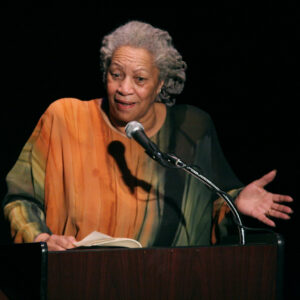
Here's the shortlist for the 2023 British Academy Book Prize for Global Cultural Understanding.
Today, the British Academy announced the shortlist for the 2023 British Academy Book Prize for Global Cultural Understanding, an international book prize, now in its 11th year, that “celebrates ground-breaking research-based works of non-fiction that have made an outstanding contribution to the public understanding of world cultures and the ways in which they interconnect.” The winner, who will be announced on October 31, will receive a prize of £25,000, while the other shortlisted authors will receive £1,000. Here’s the shortlist:
Tania Branigan, Red Memory: Living, Remembering and Forgetting China’s Cultural Revolution (Faber & Faber)
Judges’ comment: “Red Memory takes effortlessly from the personal to the political to the historical to deliver a very accessible account of China’s Cultural Revolution. In so doing it ventures beyond that moment in China’s past to explore both what countries chose to remember and how they decide to forget. Elegant, intelligent, complex and vivid, Red Memory offers an engrossing, haunting, human account of a specific moment and its broader meaning.”
Nandini Das, Courting India: England, Mughal India and the Origins of Empire (Bloomsbury Publishing)
Judges’ comment: “This beautifully written book tells the story of England’s first diplomatic mission to India in the early 1600s, through a combination of biography and historical narrative, alternating microscopic details with broader panoramas. As we learn how the Mughals and English understood, and misunderstood, each other, we appreciate how Das’s shifting perspective reveal important insights into global connections and changing power dynamics in this pivotal period of world history.”
Daniel Foliard, The Violence of Colonial Photography (Manchester University Press)
Judges’ comment: “The Violence of Colonial Photography is a meticulously researched and unique book. It powerfully exposes how the camera became a tool for imperialism and provokes new questions on the different forms colonial violence can take and how we should regard photographic archives.”
Kris Manjapra, Black Ghost of Empire: The Long Death of Slavery and the Failure of Emancipation (Allen Lane / Penguin Books)
Judges’ comment: “Written with restrained passion, this is a detailed and disturbing account of the false dawn of emancipation that accompanied the formal abolition of slavery in the nineteenth century. Set against the enormity of the transatlantic slave trade and the myths surrounding its ending, this book gives life and memory to the enslaved, identifies the forces that built new systems of servitude in the aftermath of slavery, and argues forcefully against the disavowal of these ghosts in our social order.”
Irene Vallejo, tr. Charlotte Whittle, Papyrus: The Invention of Books in the Ancient World (Hodder & Stoughton)
Judges’ comment: “Irene Vallejo successfully narrates the grand history of books and writing through the prism of the personal. She brings to life the minute details of the intellectual debates and controversies that flourished in the ancient capitals of the Mediterranean Sea. From Alexandria to Rome, she captivates the reader by her story-telling skills, meticulous research and much appreciated movement between the past and the present. Papyrus is a book about books that enchant us all. It makes us appreciate knowledge that travels around the globe to enrich our minds and hearts.”
Dimitris Xygalatas, Ritual: How Seemingly Senseless Acts Make Life Worth Living (Profile Books)
Judges’ comment: “This thoughtful, often entertaining exploration of rituals, both mundane and extreme, paints a vivid picture of the great variety of repeated practices that have meaning across the world—from the athlete who always wears the same socks, through the swearing in of a president to the rigors (and joys) of walking across burning coals. By examining how rituals transform our inner world and our social being, this book underlines the part they play in the constitution of our humanity.”



















